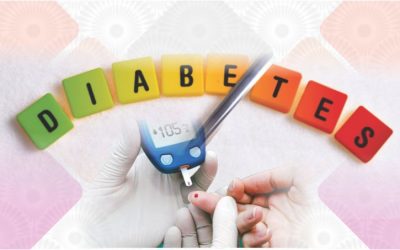Can Probiotics Help with IBS Symptoms? Exploring Their Role in IBS Treatment
Medically Reviewed By:
Dr. Hema Sathish M.B.B.S., D.D(UK)
Dermatologist, Founder of Cureka
The Gut Puzzle: Understanding IBS and Its Challenges:
A frequent ailment affecting the stomach and intestines, often known as the gastrointestinal tract, is irritable bowel syndrome (IBS). Constipation, diarrhea, gas, bloating, cramps, and stomach pain are some of the symptoms. IBS is a chronic illness that requires continuing care. Only a small percentage of IBS sufferers experience severe symptoms. By controlling their food, lifestyle, and stress, some people can manage their symptoms. Counseling might be used to manage more severe symptoms.
The exact origin of IBS is still a mystery to doctors, but one thing is clear: the delicate balance in the stomach is important. What role do probiotics play in treating IBS, then? Might these microscopic organisms be the key to reducing the symptoms of IBS?
Aware of the symptoms
A gastrointestinal condition called irritable bowel syndrome affects the large intestine and can cause a number of symptoms, including discomfort. The severity of the illness varies; some people have modest symptoms, while others have more crippling problems.
There are some IBS symptoms, including
- Inconsistent bowel movements
- Diarrhea or constipation
- Bloating and gas
- Mucus in stool
- Abdominal pain and cramping
It’s necessary to know the core symptoms of IBS, like abdominal pain, bloating, and change in bowel habits.
Why a Healthy Gut Means a Healthier You!
Maintaining good gut health is the crucial thing for avoiding IBS and its symptoms. A healthy gut helps in aiding digestion, improves the absorption of nutrients, favourably impacts mental health, boosts immunity, and reduces the risk of chronic diseases like diabetes, heart disease, and inflammatory disease. It helps prevent common issues like constipation and bloating. On the other side, poor gut health may lead to frequent illness, fatigue, and skin problems.
To prevent IBS and maintain good gut health, certain measures should be followed. First of all, Fibre rich foods like vegetables, whole grains, and legumes should be included in your diet, which can easily be consumed everyday. Including probiotics rich foods like beetroot, curd, and dishes made from fermented doughs, such as dosa and idly helps introduce the beneficial bacteria that help balance the gut microbiome. At the same time, high Fodmap foods should be avoided completely. By following these measures, one can prevent himself from being on the verge of getting IBS and maintain a healthy gut.
Probiotics: The Gut’s Tiny Superheroes?
Probiotics—live microorganisms, usually yeast or bacteria—produce health advantages. Probiotics, sometimes known as “good bacteria,” aid in balancing the gut microbiota, which is made up of billions of bacteria that live in the gut.
The symptoms of IBS might differ greatly from person to person based on the types. No matter the kind, the discomfort that IBS symptoms produce can interfere with everyday activities, which is why many people look for efficient IBS treatment solutions.
Do you know?
Butter milk, beetroot, curd and foods from fermented doughs like Idly and dosa are the foods that are consumed by IBS sufferers for their probiotic content.
GUT-BRAIN Relation in IBS:
The intricate connection between the gut and the brain must be taken into account in order to comprehend how probiotics might aid with IBS. This relationship, which is sometimes called the “gut-brain axis,” implies that brain function can be influenced by the condition of the gut microbiota and vice versa. According to research, individuals with IBS frequently have an imbalance in their gut microbiota, which could be a contributing factor to their symptoms.
It is believed that probiotics can aid by bringing the gut microbiota back into balance, encouraging the growth of good bacteria, and possibly enhancing gut-brain communication. IBS symptoms may eventually be alleviated as a result of decreased inflammation, enhanced gut motility, and a calmer gut environment.
How Do Probiotics Help with IBS Symptoms?
Probiotics are being explored more and more as a possible remedy for the symptoms and management of IBS. Probiotics’ capacity to have a beneficial impact on the gut microbiota is the basis for the theory that they can help control the symptoms of IBS. Probiotics may help with the following common symptoms of IBS:
- Regulating Gut Motility:
Probiotics can help the digestive tract move food and waste products through it, which is especially helpful for IBS sufferers who have diarrhea or constipation. Probiotics can help normalize bowel motions by enhancing motility.
- Restoring Microbial Balance
Restoring good bacteria in the gut is one of the main ways probiotics may aid with IBS. According to research, bloating, gas, and abdominal pain are some of the symptoms of IBS that may be caused by an imbalance in the gut flora. Probiotics are thought to help repair the intestinal environment and alleviate symptoms by introducing helpful microorganisms.
- Reducing Inflammation:
IBS patients frequently have low-grade intestinal inflammation, which exacerbates their discomfort and pain in the abdomen. By generating short-chain fatty acids (SCFAs), which support the gut lining and reduce inflammatory indicators, probiotics aid in the reduction of inflammation. People with IBS may experience reduced pain, discomfort, and bloating as a result, which will enhance their general quality of life.
- Enhancing the Gut Barrier:
By strengthening the gut’s barrier, probiotics may help stop dangerous compounds from entering the circulation, which could aggravate IBS symptoms and set off immunological reactions.
A Peek at the Science: What Researchers Say
The usefulness of probiotics in treating IBS symptoms has been the subject of an increasing amount of study in recent years. According to a number of studies, some probiotic strains can significantly reduce the symptoms of IBS, such as bloating, altered bowel motions, and abdominal pain.
How to Choose Probiotics for Your IBS Battle Plan?
The type of bacteria used in probiotics determines how effective they are, and not all probiotics are made equal. Probiotics for IBS that are most frequently studied include:
- Lactobacillus rhamnosus GG: Research on this strain’s potential to reduce IBS symptoms, particularly diarrhea, is ongoing.
- Bifidobacterium infantis: This strain, which has anti-inflammatory qualities, may help ease bloating and discomfort in the abdomen.
- Saccharomyces boulardii: One kind of yeast-based probiotic that may aid in the treatment of IBS that is characterized by diarrhea.
Before beginning a probiotic supplement, it is imperative that you speak with a healthcare provider since they can help you identify the strain that is best for your particular symptoms.
The Bottom Line: Hope, Not Hype
So, can probiotics help with IBS symptoms? For a lot of people, they seem to be a hopeful part of the IBS puzzle—helping to ease discomfort, improve regularity, and provide a natural boost. However, they’re not a magic solution, and you shouldn’t expect miracles to happen overnight. The real key? Pairing probiotics for IBS with a personalized plan that suits your body. It’s a good idea to chat with a healthcare professional to see if they might be worth trying. After all, when it comes to managing IBS symptoms, every little bit of relief matters!
FAQ’s
1. Can probiotics help manage IBS symptoms?
Yes, probiotics can play a significant role in managing IBS symptoms. Research suggests that probiotics may help balance the gut microbiota, reduce bloating, and alleviate discomfort associated with IBS, particularly in individuals with gut dysbiosis.
2. How do probiotics work for IBS treatment?
Probiotics work by restoring the balance of good bacteria in the gut, which can reduce inflammation and improve digestive function. This helps to alleviate common IBS symptoms such as bloating, gas, and irregular bowel movements.
3. What are the best probiotics for IBS?
The best probiotics for IBS are those containing specific strains like Bifidobacterium and Lactobacillus. These strains have been shown to improve digestion, reduce bloating, and alleviate IBS-related symptoms. Consult with a healthcare professional to find the right one for you.
4. Can probiotics cause any side effects in IBS sufferers?
While probiotics are generally safe for most people, some individuals may experience mild side effects like gas, bloating, or diarrhea when first starting them. These symptoms typically resolve as the body adjusts to the new gut bacteria.
5. How long does it take for probiotics to improve IBS symptoms?
It can take anywhere from a few days to several weeks for probiotics to show noticeable improvements in IBS symptoms. Consistency is key, and it’s recommended to take probiotics regularly for a few weeks to experience their full benefits.
Reference:
- The efficacy of probiotics in the treatment of irritable bowel syndrome: a systematic review – Mar 2010 – https://gut.bmj.com/content/59/3/325.short
- The Role of Bacteria, Probiotics and Diet in Irritable Bowel Syndrome – Dec 2017- https://www.mdpi.com/2304-8158/7/2/13











